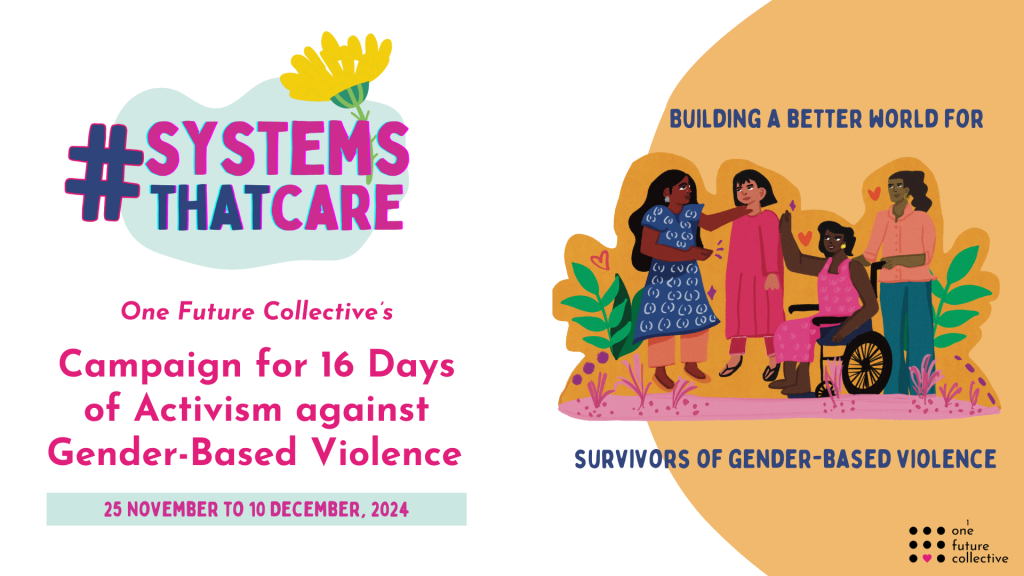
Our world has long acknowledged the need to address the widespread violence entrenched in our societies, yet existing systems still fall short in supporting survivors of such violence. Far too often, survivors seeking healing, justice, or even basic support through both state and private systems encounter barriers that compound their trauma instead of alleviating it.
To dismantle these systemic issues and disrupt the insidious rape culture that permeates every level of our society, we need to transform how we approach and address sexual- and gender-based violence. This means treating it as a systemic issue and demanding change where it matters most: in our courts, our hospitals, our workplaces, our public spaces, and our homes.
In line with the UN’s theme for 16 Days of Activism, ‘Recommitment, Accountability, Resourcing Towards Beijing+30: Unite to End Violence Against Women and Girls,’ we are carrying forward the work we began earlier this November for the upcoming Beijing+30 Review. This campaign is about more than awareness—it’s about action. Together, we’ll work towards strengthening healing and justice systems; ensuring that survivors have meaningful access to gender-responsive care; and fostering a zero-tolerance culture toward violence in our everyday spaces.
Join us in in this sixteen-day journey as we cultivate trauma-informed, socially just, and survivor-centred #SystemsThatCare. This is your chance to reimagine our world and contribute to building a society that supports survivors, centres healing, and demands justice.
What if we lived in a world that radically cared about survivors? Strengthen our collective vision of healing and justice by sharing words, art, poetry, songs, or even memes, on what a world that centers survivors would look like.
*

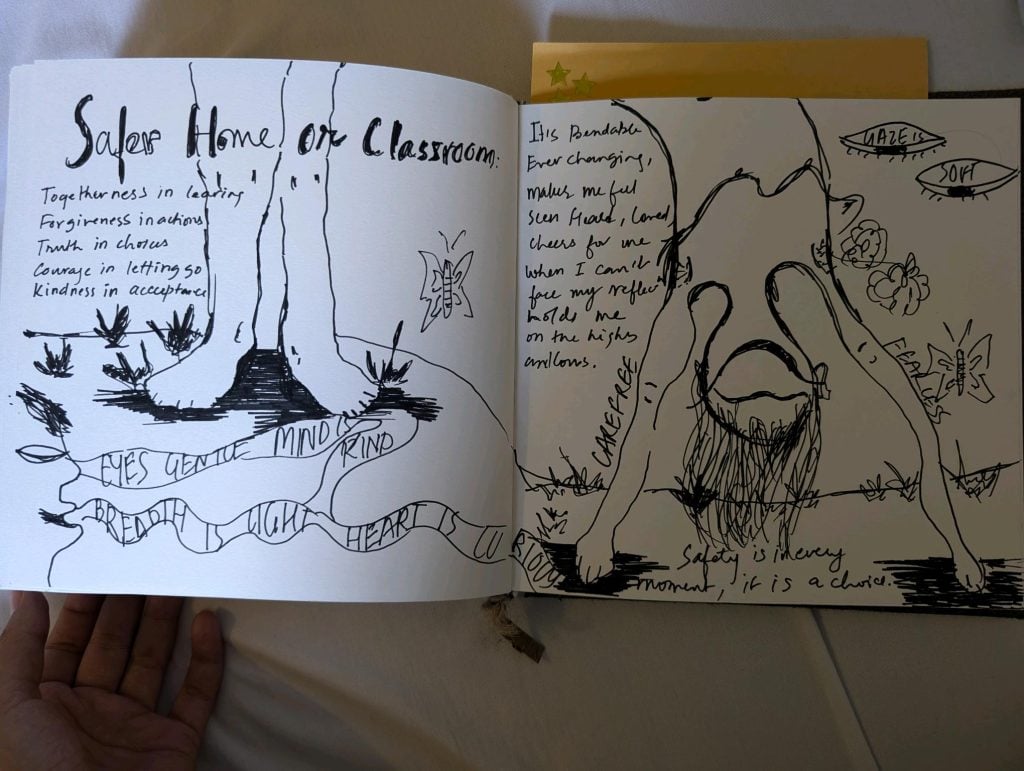
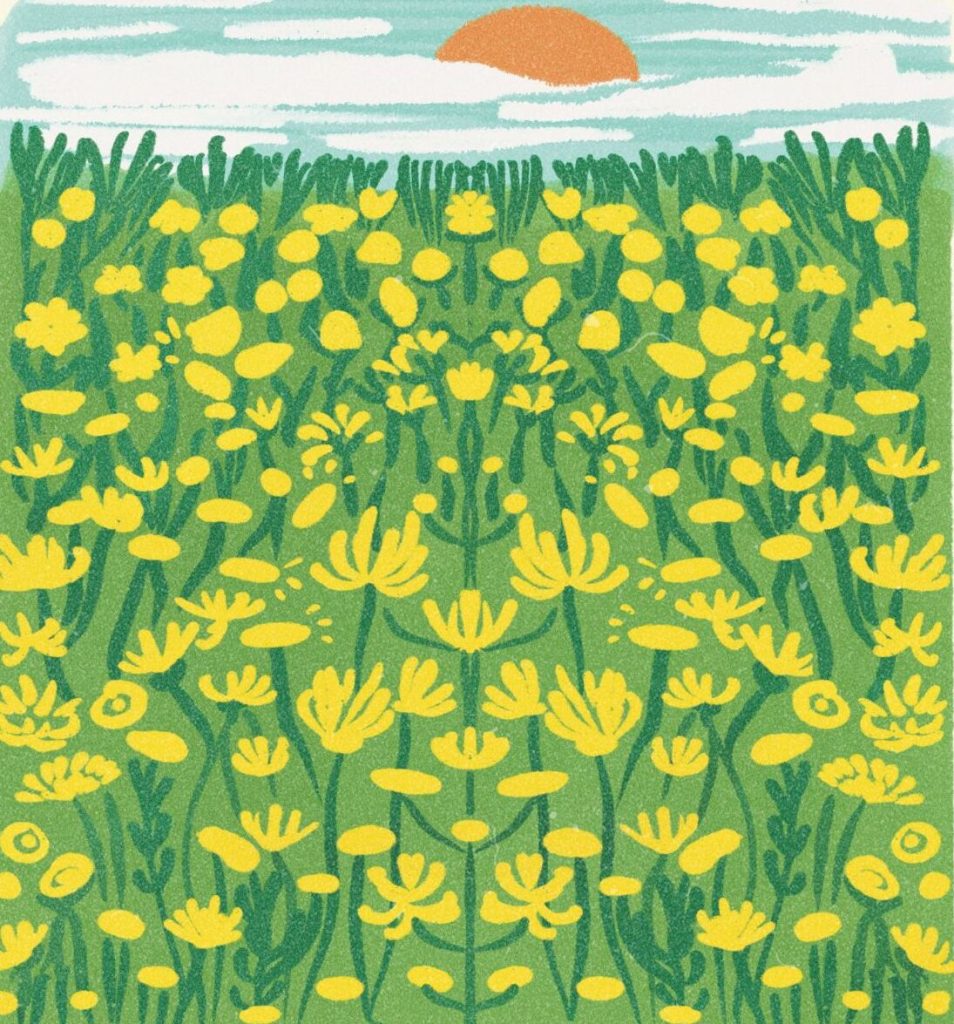
Learn.
Our book, Planting Dandelions, takes the first step in nurturing a trauma-informed and just ecosystem of support for survivors of sexual and gender-based violence, by equipping people to support survivors in their healing journey, in both professional and non-professional capacities. Download and share a copy in your workplaces, colleges, and communities.
*
To those who read this with the intention of supporting survivors, know that every little thing you do in this direction matters.
*
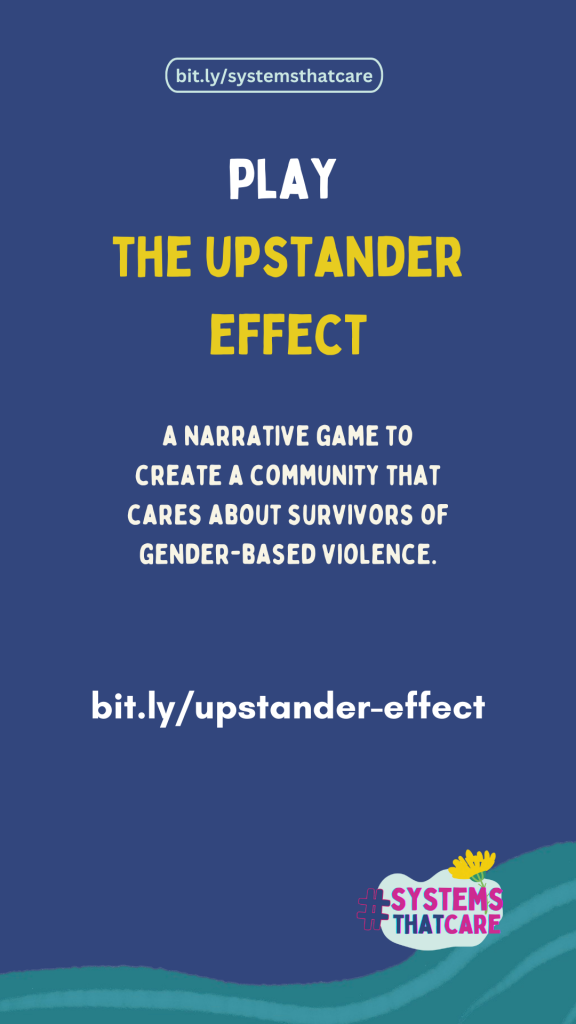
Play.
The Upstander Effect is a narrative simulation game that trains users on bystander intervention. In this immersive game, you roleplay as someone witnessing an act of gender-based violence happen in front of you. Through the game, you will learn what tactics work and what don’t in these situations.
Together, we will create a more responsive society.
*
*
“What if we lived in a world that radically cared about survivors?”
This question kicked off our campaign through an online Community Healing Space, where participants doodled their visions of such a world. One participant remarked how the prompts stuck with them, especially as they reflected on how institutions could truly serve survivors. They noted how these reflections would shape their work with children, underscoring the importance of spaces like this for sparking lasting change. Art, conversation, and care—this space was a little step toward re-envisioning our systems.
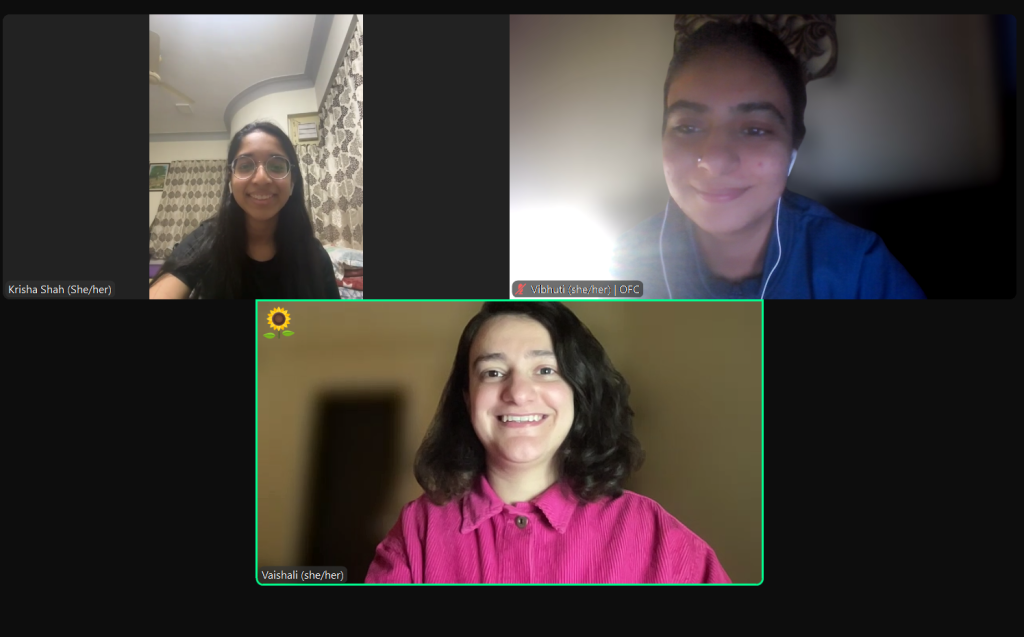
"Each time a crime against a woman happens in a public space, the first question that is asked is, what was she doing there? Why was she not at home? What was she wearing? Why was she being so adventurous, so reckless? And each time, the fear narrative is put in us, that if you go out, this will happen to you too, so you should stay at home. But that doesn't solve the problem at all. So instead of going back into the homes, we need to go out, in larger numbers, and exercise our right to risk and pleasure. And just be out in the open, just feel the breeze in our hair, just smile at strangers, and sing and dance and lie down on the grass because this city belongs to us as much as it belongs to anybody else. And nobody has the right to question why we are out in a public space at whatever time we feel like." — Neha Singh, Founder of the Why Loiter Campaign
Public spaces are deeply intertwined with the fabric of our societies, influencing not just how we move but how we form relationships, build communities, and exercise our rights. Yet, we often occupy these spaces only with purpose: commuting, running errands, or completing tasks that keep our routines flowing. With this in mind, we collaborated with the Why Loiter Campaign in Mumbai, where 11 women and gender non-conforming people walked from Dadar to Bandra station at midnight. In Delhi, we collaborated with Global Shapers Gurugram for a walk where 11 of us wandered across the city in the morning. Held on 30th November, These walks were about being present without any specific purpose—to reclaim public spaces as places for leisure, joy, and community. These walks challenged societal norms that tie our worth to productivity and reinforced our right to simply exist in shared spaces.
Our society often cloaks surveillance in the guise of safety, dictating who belongs where and when. Rules around public spaces—curfews, restricted activities, and visible security—often stem not just from concerns of safety but from attempts to enforce morality and control. These measures do not make spaces safer for marginalized communities; instead, they limit access and instill fear. Through these walks, we turned the safety narrative on its head. Instead of asking for more surveillance or protection, we asserted our right to take risks, experience these spaces freely, and redefine what safety means for us as women and queer individuals. It was a celebration of our right to loiter, linger, and live without asking or justifying—a statement that cities belong to all of us, unconditionally.
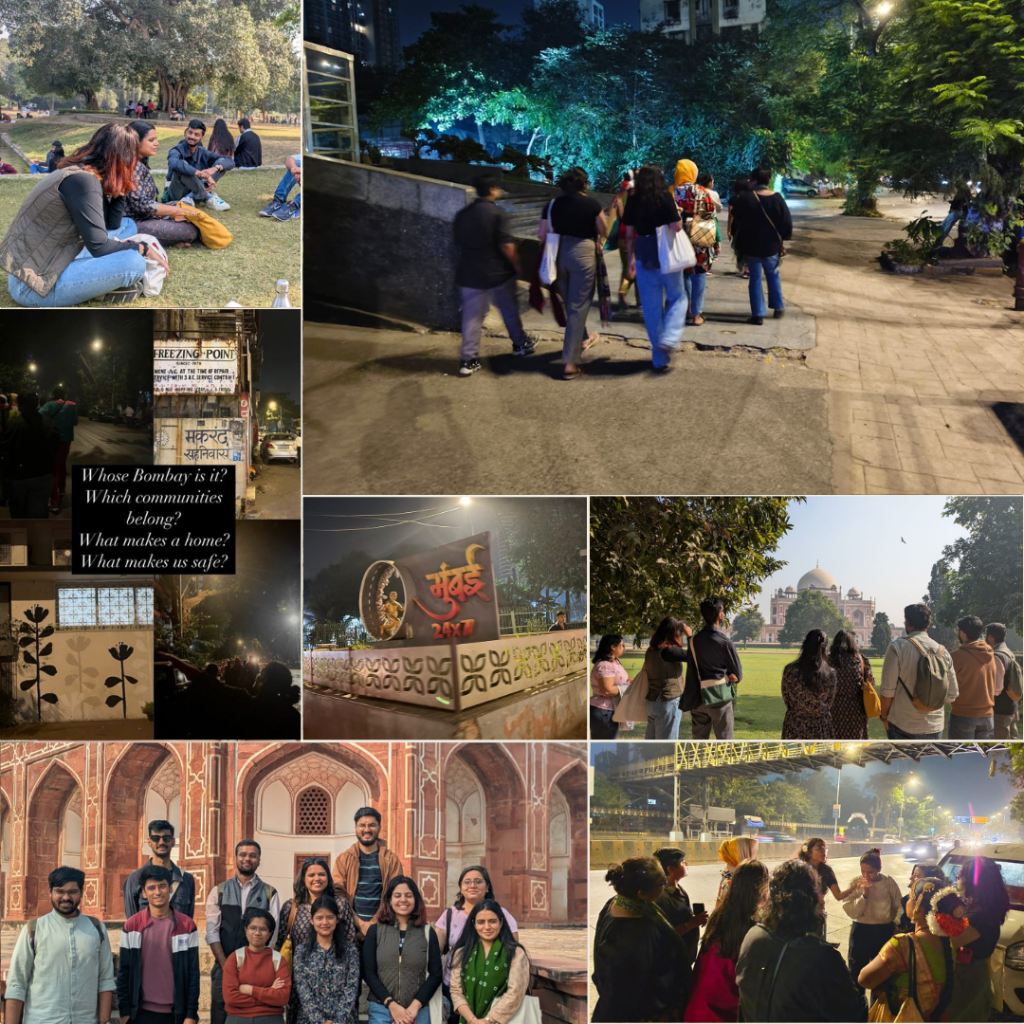
On December 7th, we hosted an offline booth at Thakur College, Mumbai, to engage students in conversations about sexual- and gender-based violence and the importance of adopting a trauma-informed lens when supporting survivors. Engaging students in such conversations provides an invaluable opportunity to nurture these values at an early stage in their academic and professional lives, ensuring that these students become active agents of transformation, equipped to build systems of care and safety wherever they go. Our goal was to spark awareness about the pervasiveness of violence and explore ways to create survivor-centric, trauma-informed systems within educational institutions and beyond.
Over 50 students interacted with us at the booth, engaging in thoughtful dialogues on building trauma-informed campus ecosystems. Activities like Safety Soup—a symbolic recipe for campus safety and healing—encouraged students to envision the ingredients of safer spaces; and Prompts ka Dabba invited self-reflection on fostering care for oneself and others; while Our Pledge encouraged personal commitment to trauma-informed care. A highlight was the narrative simulation game, The Upstander Effect (linked above!), where participants role-played as bystanders intervening in instances of gender-based violence. Faculty members also engaged with booth activities and accessed our online resource book, Planting Dandelions: Supporting Survivors of Sexual and Gender-Based Violence. This initiative underscored the systemic changes needed in educational spaces—shifting from a culture of blame and neglect to one of care and accountability. Together, the booth created a collaborative space for students and educators to reimagine campuses as safe and just environments, where survivor well-being is a priority.
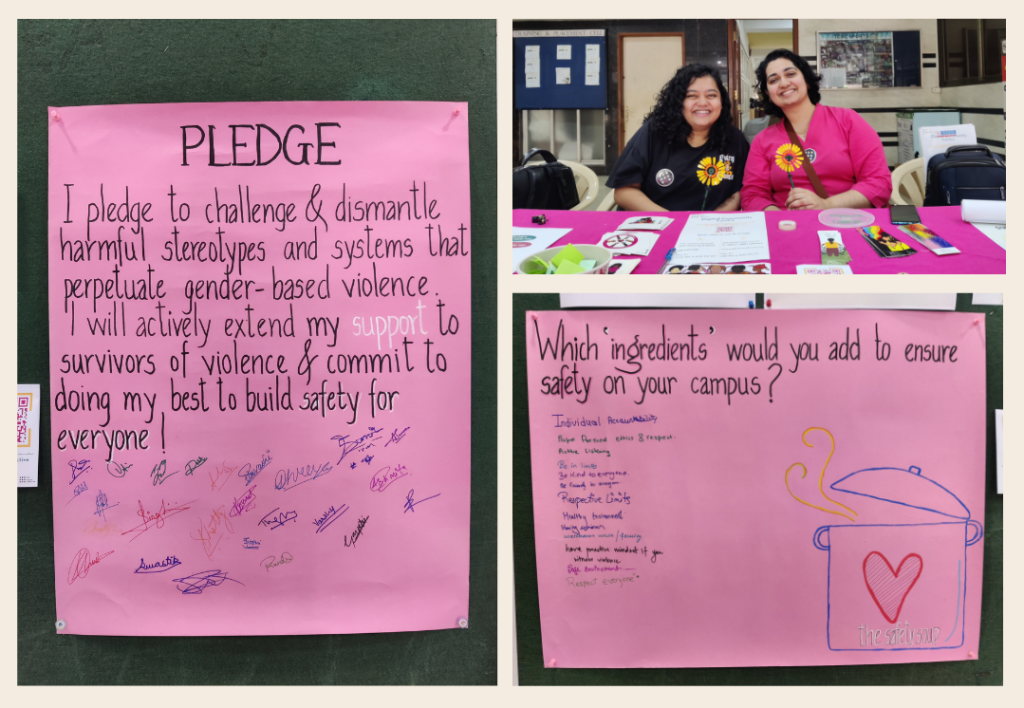
Homes and residential communities are central to creating spaces of safety, healing, and support for survivors of gender-based violence. The role of Resident Welfare Associations (RWAs) in these spaces is vital—they are uniquely positioned to create community-driven systems of support for survivors, offering a network of care beyond the immediate family. On 8th December, we held a dialogue with RWAs in Delhi NCR to explore their role in addressing gender-based violence. Seven key officeholders participated in the discussion, sharing their experiences of supporting survivors within their residential communities. We emphasized that gender-based violence impacts women across age groups and marital statuses and that RWAs play an essential role in creating a supportive environment. The conversation underscored the importance of these organizations being proactive in fostering awareness and providing resources to those in need. We concluded the engagement by sharing resources that RWAs can circulate within their communities and discussed ways to continue and deepen this partnership.
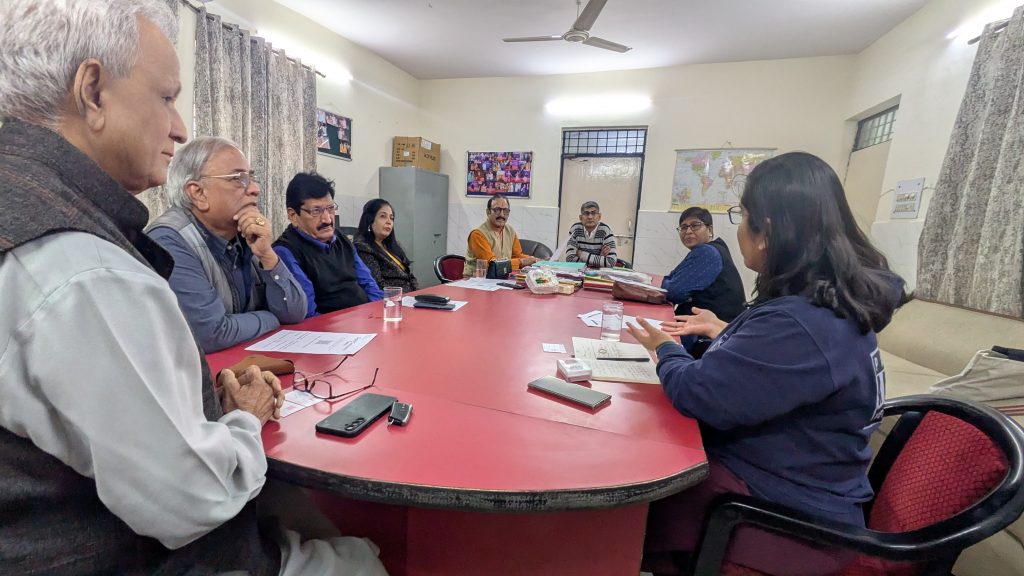
We also launched the Upstander Network, an initiative designed to build public capacity to support survivors of Sexual and Gender-Based Violence (SGBV) by enabling upstanders and building hyperlocal care networks. By leveraging the collective power of an engaged community, this network aims to start by building a trained database of committed individuals who are able to provide emergency assistance (including, but not limited to: transportation, accompaniment, emergency rescue, and police liaison) for survivors of sexual and gender-based violence.
To mark the launch of this network, we hosted a panel discussion on the topic of ‘Need for Citizen Action in Supporting Survivors’ on 10th December 2024. We invited 3 panellists—Swati Bansode (representing CORO INDIA), Arzoo Shakir (a Feminist Youth Leader), and Anushree Jairath (an Independent Feminist Researcher and Activist)—each bringing a unique point of view. We discussed several strategies to turn individual awareness into collective action and the various initiatives where they have successfully mobilised communities for action. To mark the end of the panel and the end of the campaign, we spoke of both individual and collective actions that folks can engage with on a day-to-day basis to contribute to building a supportive ecosystem of support for survivors.
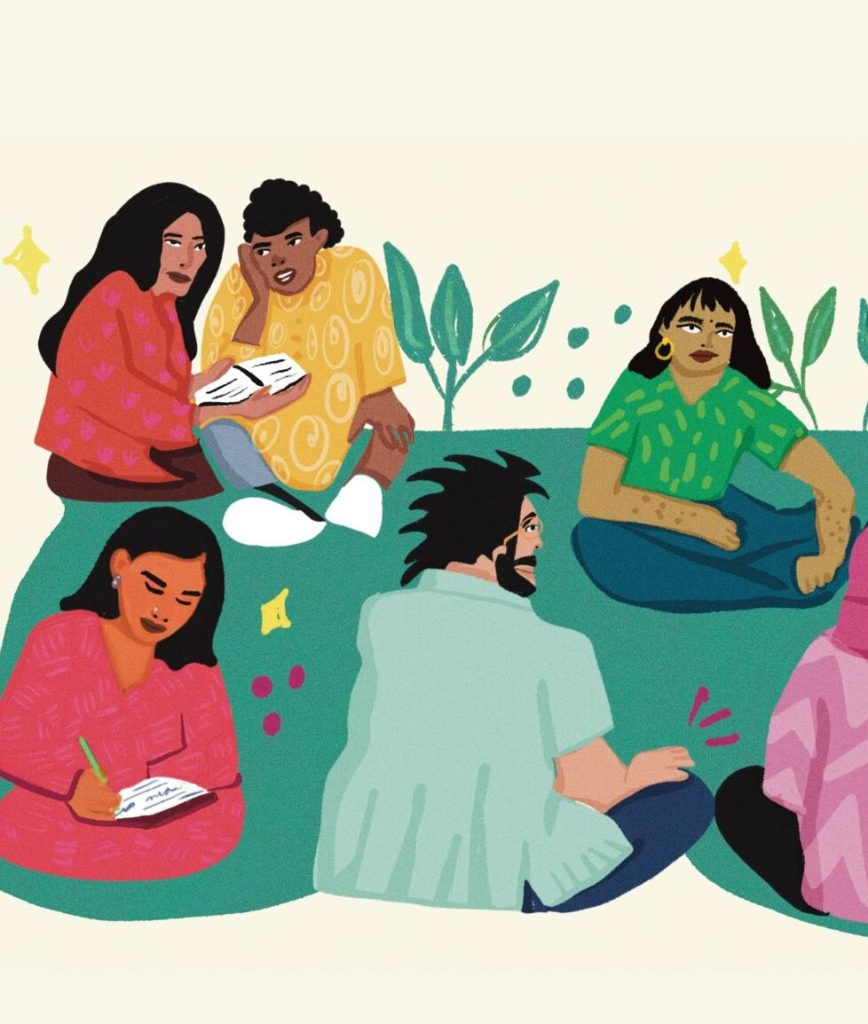
Participate.
Are you ready to become an upstander? An upstander is a person who witnesses violence and intervenes to prevent further harm and provide emergency or other forms of support. Our Upstander Network is a community based initiative that aims to build a responsive community of upstanders who offer feminist peer support and intervention using hyperlocal care networks.
*
If you are from Bombay, Delhi, or Bangalore and are interested in joining the Upstander Network, click the button below!
*
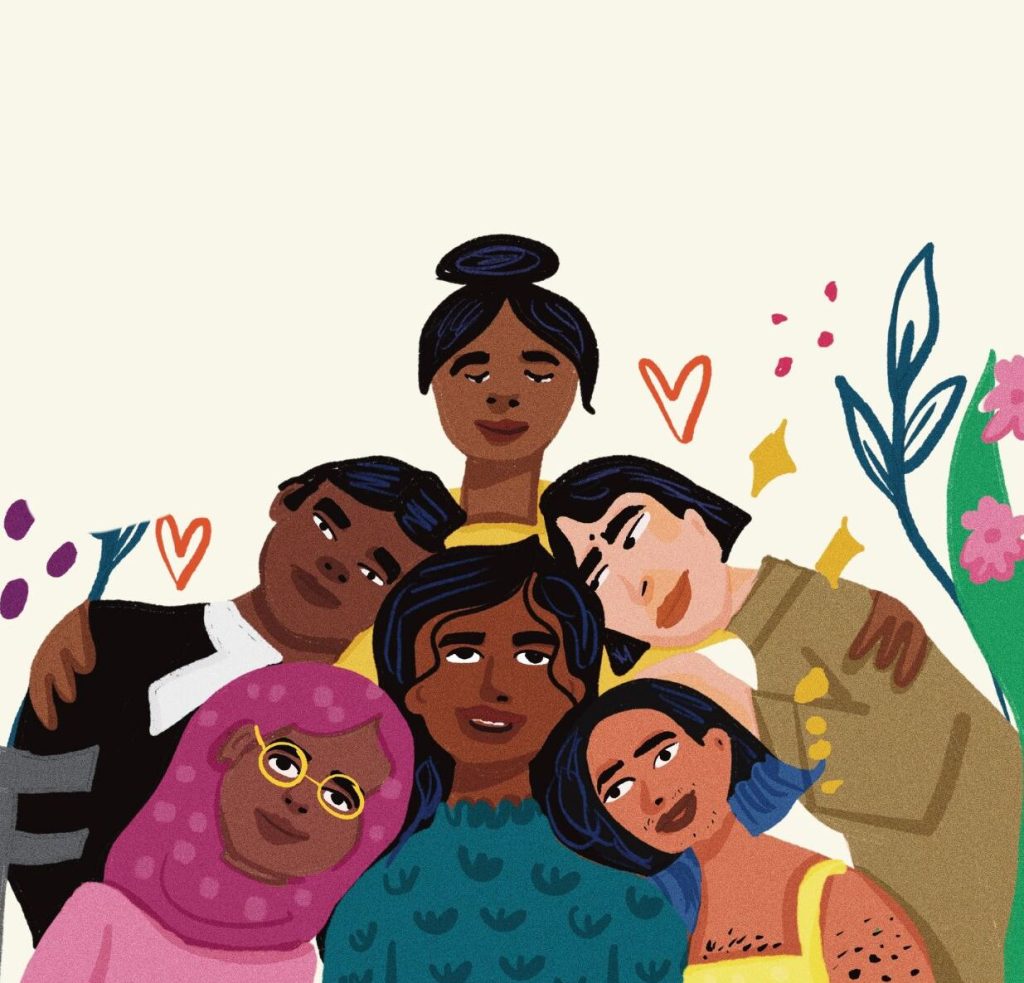
Give.
While our resources and events for our 16 Days of Activism campaign are completely free to access, your contribution would enable us to continue developing resources for a more just world.
*
Consider chipping in!
*
Our #SystemsThatCare campaign is being run in collaboration with Asmita Ghosh, a digital campaigner.